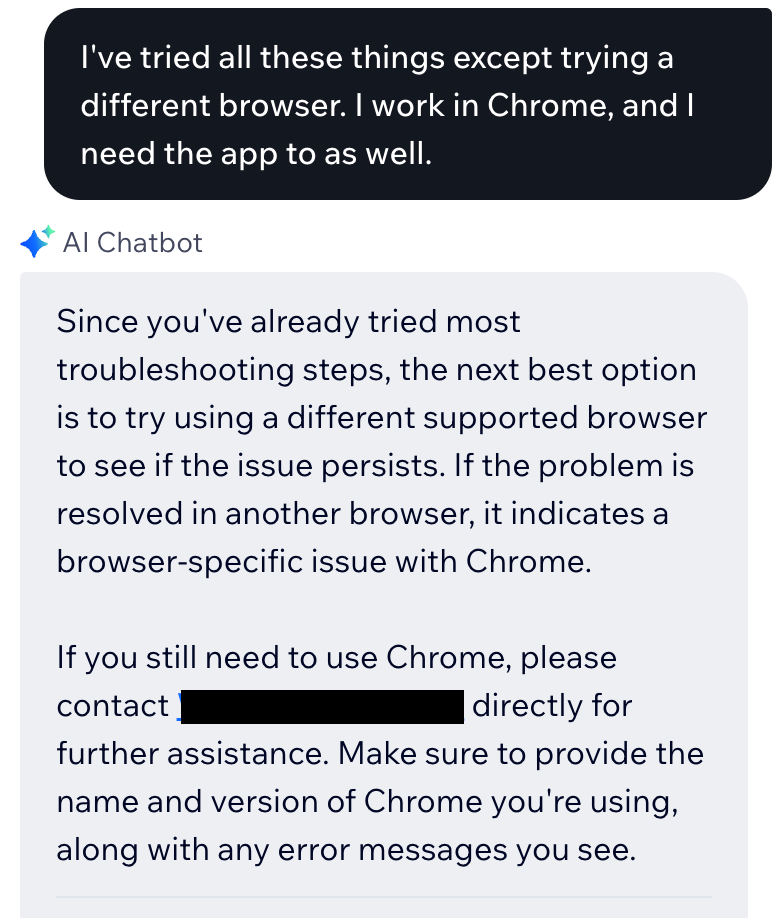On AI in Support
- Tricia Hester
- May 21
- 2 min read
I love a good AI chat bot. Speaking as a user and as a product support specialist, AI has significantly upped the game in on-demand support.
But there's a trade-off that we need to talk about.
I know when I'm chatting with an AI agent, and so do your customers. There are aspects of human communication that AI doesn't mimic well.
Your AI agent may be adept at identifying a user's issue and providing the correct solution and resources. However, AI cannot so easily identify the emotional state of your user much less respond accordingly.
Consequently, AI has significant potential to elevate customers' frustration regardless of eventual issue resolution.
Here's an example from a conversation I had with a Chat AI. I am having trouble editing the design of an imbedded app because the app settings will not load. The AI recommends that I go through the boilerplate troubleshooting steps: clearing my cache, updating the browser, etc.
One of these steps is to try a different browser. But I'm not going to use Safari to do this one task when my workspace is configured on Chrome. Here's the end of my exchange with the AI:

The AI is not able to adjust its approach to the subtle notes of irritation in my response. A skilled product support specialist reading, "I work in Chrome, and I need the app to as well," knows that the user is not happy about being asked to switch browsers. Therefore, they're unlikely to essentially respond with "try a different browser anyway."
After all, using a different browser provides Support with valuable information and the user with a temporary workaround. It's not a solution to the problem.
At this point in the conversation, I'm more annoyed than I was when I began the chat. That's a problem.
Now consider what I human would bring to this interaction:
Recognition of the user's emotional state
De-escalation of that emotional state through mirroring and validating their concern
Clarity in the purpose of trying a different browser
Assurance that the end goal is to get the app working in Chrome
Connection to similar issues that may provide hints about what's happening
When AI provides users with on-demand product education, so they can skip the foray into your knowledge base and get back to work sooner, then this trade-off is worth it. Users appreciate the convenience, and it increases product engagement.
However, when AI delays connection with a support agent for technical issues or complex product questions and then does not facilitate that connection, users become frustrated and disengaged in a way that is often invisible.
Every interaction with Support is a relationship-building opportunity; using AI already creates distance between your users and your company. When integrating AI into support, consider this trade-off. Thoughtfully leverage its strengths and quickly connect users to agents when a human touch is needed.


Comments